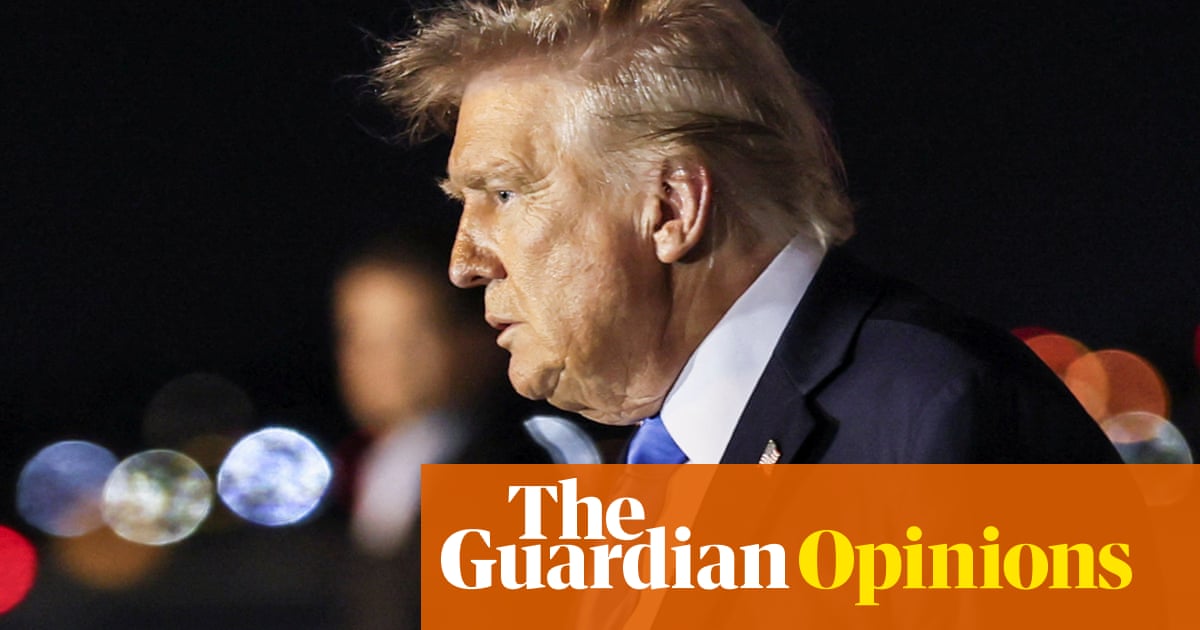You say you want a revolution, sang the Beatles back in 1968. And that seems to be the interpretation of electoral results across the industrialised world.
From the seismic shifts in recent US and German elections to the rise of Reform and the Green party in the UK, electorates are signalling that they reject the status quo.
As the song says: “We all wanna change the world.”
And yet, there is an important caveat in the next few lines of the lyrics penned by Lennon and McCartney that are just as important almost 60 years later.
“But when you talk about destruction, don’t you know that you can count me out.”
As private wealth has accumulated since the 1950s, only the radical few have been prepared to see jobs disappear and their wealth diminished while they wait for the supposed benefits of political and economic upheaval. And no amount of pleading from leaders to wait for the good times will overcome that resistance.
For several years now we have witnessed the call for revolution from those who consider themselves insulated from its effects, until that is, the level of destruction they voted for takes a toll on their own finances.
That was the case with Brexit, and buyer’s remorse is now widespread.
While it takes time for people to react, financial markets have become more sensitive.
Over the past month we have seen the custodians of global wealth – fund managers and pension funds – react with almost palpable anger to Donald Trump’s attempts at revolution, just as they did when former prime minister Liz Truss embarked on a borrowing spree to revolutionise the UK’s economy.
Andy Haldane, the former chief economist of the Bank of England and outgoing boss of the Royal Society for the Encouragement of Arts, Manufactures and Commerce (RSA), says financial markets have become a bulwark against leaders’ excesses.
Writing in the Financial Times, he said the interconnectivity of world trade and the costs of tearing up supply chains sparked fears of a return to high inflation, spooking investors.
“The excess sensitivity of financial markets [applies] a double-lock. By telescoping and amplifying these costs, they serve as a real-time disciplining device on politicians claiming they can weather the short-term pain. This makes capitulation speedier than in the past.”
Last month the US president vented his anger at financial markets,accusing them of undermining his economic project with panic selling.
Coining a new term, he said on his Truth Social platform: “Don’t be a PANICAN (A new party based on Weak and Stupid people!).”
Haldane is not the only one to say that the loss of more than $6tn from global stock markets by the end of April, which wreaked pain on ordinary savers and undermined consumer confidence, helped halt the tariff scourge.
As a senior fellow at the free-market American Enterprise Institute (AEI), Desmond Lachman analyses the subject from a different perspective, butcomes to the same conclusion. He said US consumers will be next to put a block on Trump’s intentions.
Despite his feisty rhetoric, Trump understands that he has less room for manoeuvre than he wanted. And his U-turns have had their reward.
The stock market recovery this week is built on US officials saying they have approached Xi Jinping for talks over escalating tariffs. That humiliating climbdown comes after Trump’s claims that China had much more to lose from tariffs than the US.
A resumption of Washington’s support for Ukraine’s war effort, after a deal to share the badly battered nation’s mineral wealth, has also calmed markets.
Lower tariffs between the world’s two largest economies and a reassertion of the old international order, one that maintains Russian aggression breached international law, is good for business.
Sensible policies have reasserted themselves and we have the markets to thank for that.
Yet, while it might seem like a good outcome for those who gained from the old system, those who consider themselves losers are left with a festering anger.
Politically, they might not achieve an electoral majority. Too many middle income households will support the old ways because that is what delivered them housing and pension assets they could only dream of 60 years ago.
The poorer half of the income distribution – those who have seen their low incomes flatline for almost two decades – might still have some power, especially if they opt for social unrest.
Lennon and McCartney wouldn’t have been surprised. They were writing the White Album while the 1968 student riots raged across Europe.
Young people are one of the biggest losers from the 21st century economic lottery. They are voting green in the south and east and reform in the west and north in ever-greater numbers. What will they do when voting gets them nowhere?
